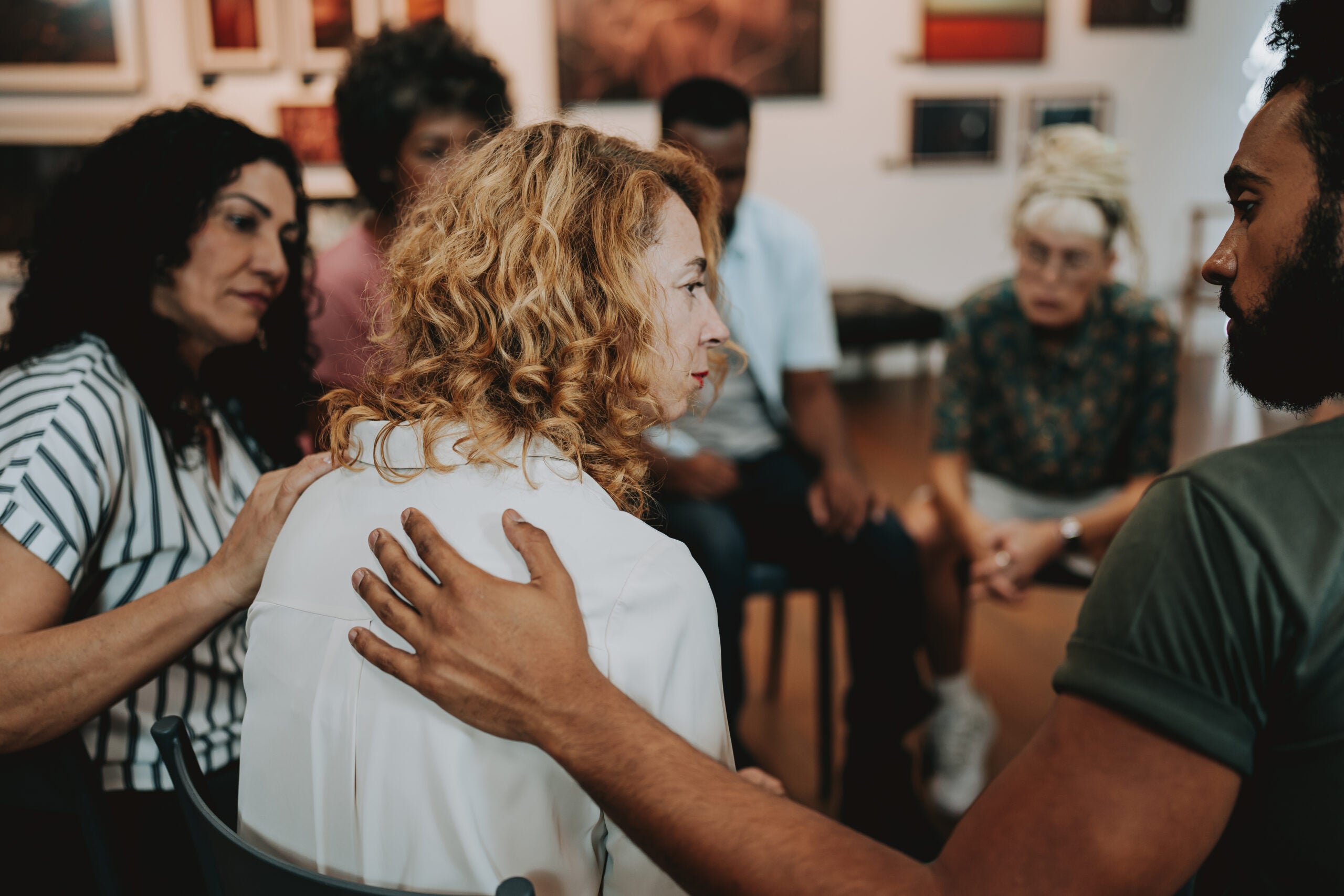How to Cope With Grief During the Holiday Season

(Photo: andrewsd | Getty)
The holidays are an emotional time of year for most of us. But when you’re dealing with grief, they can feel almost unbearable.
Your experience with grief is your own, although almost everyone will experience loss.
Instead of viewing your grief as something you must overcome, try pacing yourself instead. “Grieving takes a lifetime,” says grief counselor Ken Druck, founder of the Jenna Druck Foundation in San Diego. “You can spread your love over the rest of your life.”
Knowing how to handle grief during the holidays isn’t easy, although it is possible to connect with others without getting overwhelmed. Druck offers the following insights on coping with grief during the holidays.
Set Healthy Boundaries
Loved ones may try to include you in holiday festivities—even when you’re not feeling up to it. Although being around friends and family may foster positive emotions, don’t push yourself.
Rather than succumb to others’ expectations for you, “Think about what you want, what will leave you feeling like you did what you needed to do,” advises Druck. “Let your heart lead the way.”
If you’re invited to a party but would rather stay home for an evening of self-care, give yourself permission to do so.
It’s okay if your emotional state is unpredictable—maybe you burst into tears randomly or feel completely numb. There is no “normal” way to grieve.
Accept that your feelings may be difficult to cope with right now, and that’s okay. Try to stay present and avoid judging yourself too harshly.
Don’t Be Afraid to Ask for Help
Tell friends and well-wishers what you need—and don’t need—from them, as often as possible. “Don’t get angry or wait for people to screw up,” Druck advises. “Tell them what’s helpful to you and what’s not.”
If you can, explain your needs in advance of a gathering. For instance, others may be reluctant to mention your loved one’s name for fear it will upset you, but you may very much want to hear it. If that’s the case, let others know.
Seek Others Who Understand
Being with people who are going through or have been through a similar loss can be a powerful comfort. “Getting that kind of support can take the anticipatory dread out of the holidays,” Druck says.
Some days, you won’t want to talk about the pain you’re feeling, although you want to be careful that you don’t avoid it altogether. Fostering a safe space in which you and others can share stories about the people you’ve lost can have a positive effect on your well-being and healing.
Attend Supportive Community Events
Local hospitals, hospices, churches, and synagogues often sponsor events and activities aimed at people spending their first holiday season without a loved one. Often these events are programmed with children in mind, providing an option for parents who question whether they should observe the holidays at all.
There are even online services—ranging from one-on-one counseling to group therapy—that are specifically designed for those who are grieving.
Of course, showing up to a support event, whether online or in person, may feel like an impossible task. Take baby steps. Tell yourself that you’ll attend an event for at least 15 minutes, and then give yourself permission to go home afterward. You may find that it’s going well and you wish to stay longer. And if not, you can go home feeling good about having tried something new.
Love and Remember, Every Day
This holiday season, you may find a new way to honor your loved one, resulting in a new tradition. Or you may just be happy to make it to the new year. But remember, a holiday isn’t not the only chance you have to cherish the spirit and memory of a loved one.
Coping with grief during the holiday season isn’t easy, but in processing your emotions, you may discover that you can honor your past without losing hope for the good things yet to come.
How to Support Someone Who Is Grieving
If you’re the friend or family member of someone who is grieving, there are ways you can help. You can try:
- Calling or texting to ask “How are you feeling today?”
- Listening when they need to talk
- Bringing dinner to their house
- Offering to do the grocery shopping
- Inviting them to social gatherings
Ultimately, though, it’s up to the grieving individual to decide what they want and don’t want.
“Even the most well-intentioned initiative can turn out wrong,” Druck notes. “Always check to see what’s needed. Or give options. ‘Here’s what we were thinking of doing—would that be okay for you?’” The most important thing is to let the person know you’re there in a caring, nonjudgmental way.